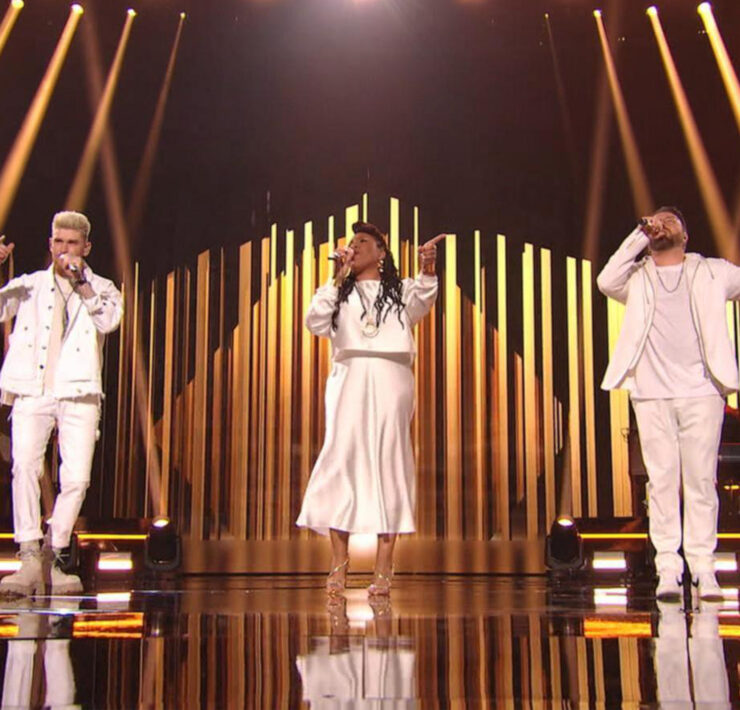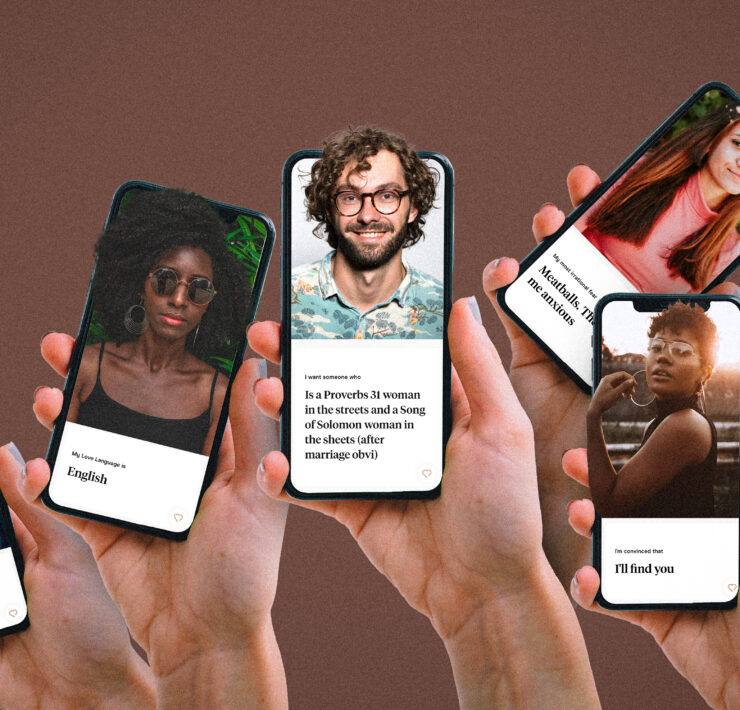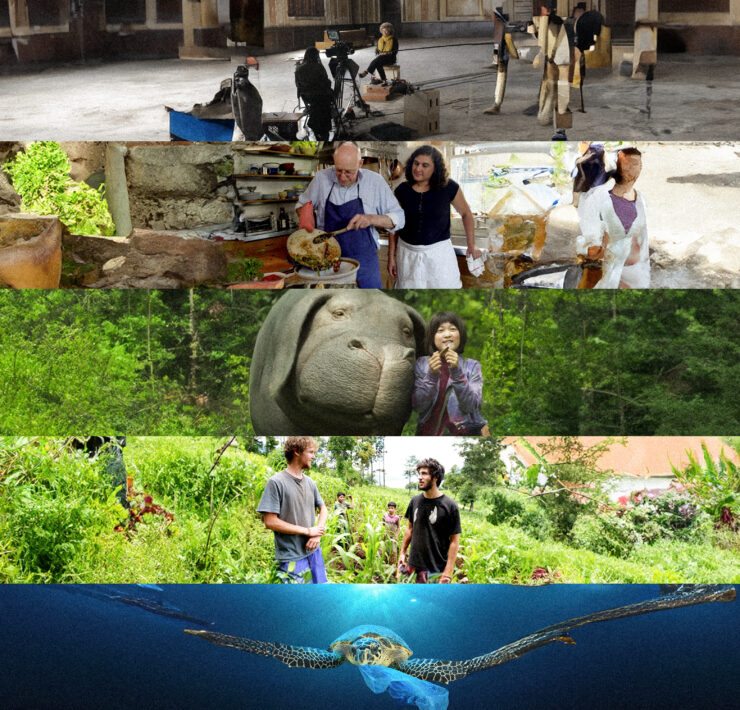
With the release of the first trailer for Ridley Scott’s upcoming Exodus movie releasing this week and rumors of Scott producing a film about the life of David circulating, the conversation about Hollywood taking on the Bible is only growing.
If there’s one thing that the whole Noah controversy this spring taught us, it’s not that Hollywood is evil or has some secret agenda to destroy the Christian faith.
It’s that many of us are afraid of art.
As the Bible movies continue to pour in, it’s time we accepted that modern biblical epics are not news reports attempting to accurately describe a sequence of events. They’re not History Channel specials trying to recount exact historical events. They’re an artistic retelling of well-known stories.
What is it about art that scares so many Christians?
Art is About Exploring the Unknown.
Most modern American Evangelicals would tell you that “Truth” is important, and they’re absolutely right. But one of the things I’ve come to learn is this: When it comes to art, something can be True without being factual.
We all know this already. We see examples of it in great fiction like Lord of the Rings and The Chronicles of Narnia. Even Jesus used occasionally fanciful parables to illustrate Truth that wasn’t strictly factual.
I’m not saying conversations about Truth aren’t important. Those types of questions help us define our human experience and navigate life. But we must learn that Truth and fact are quite different. The response of many Evangelicals to movies like Noah revolve around the question, “Is it factual?” And the answer is frequently, “No.” That’s important, and we need to acknowledge that.
But just because a biblical movie isn’t 100 percent accurate doesn’t mean the Bible’s message is being intentionally distorted. Artists aren’t always looking to delve deeper into the facts. A good artist will look deeper into the Truth.
Art often gives us a new glimpse into something so that we might experience it in an entirely new way. With fresh eyes and a fresh perspective.
But we often reject art because it explores the unknown. Dealing in the realm of “fact” is safe. It makes us feel like we have a grasp on life.
But when those constructs are touched—even ever so slightly—we vehemently defend them. Not because we necessarily care about the facts but because those ideologies make us feel safe.
But when we come to recognize the immensity of God and the ways through which he might reveal Himself, we discover that He is revealed in a myriad of ways—far beyond our narrow expectations. Art becomes one of those vessels through which we can discover a greater depth and a fresh perspective.
Art is About Accessing the Unseen.
In the same way living a life built on “facts” is reassuring, living a life that is somewhat separated from the supernatural work of God is also safe and neat.
Let’s face it: The lives of the people in the Bible were messy. Following God meant being inconvenienced a lot—going to foreign lands, building an ark in the middle of the desert, shipwreck, imprisonment. But those people were full of power.
To someone who has built a wall around their physical existence and the supernatural, the unseen is uncomfortable. And art is all about accessing something beyond our senses.
Art is About Reading Between the Lines.
Our modern take on Christianity is fairly pragmatic. It’s “What You See Is What You Get.”
But art isn’t practical. Art is about seeing beyond what’s on the surface and into what’s deep in the heart of people and the nature of the universe.
That’s a scary idea to someone who’s surrendered their willingness to be thoughtful, willing and discerning in the name of piety.
But the thing is, truly experiencing God is a lot like experiencing art.
God is not a “what you see is what you get” kind of God. God is “what you see is only the beginning.”
The Bible is explicit about some things, but not everything. And where the Bible is not explicit, a good artist can explore the Truth by reading between the lines.
Art is About Believing a Different Reality is Possible.
Since Jesus ascended into heaven, there have been Christians who have thrown their hands up in the air and said, “I’ll just sit here until Jesus comes back.” Today, we have defeatist phrases like, “the world is going to hell in a hand basket.” This kind of attitude—once again—is the easy way. It’s to say that “the ways things are is just the way things will always be, so I’m giving up.”
But art flies in the face of this kind of helplessness.
The very root of creativity implies a belief in the possibility of change.
Even the artist with a perspective of defeat, hopelessness or death speaks against his own nihilism in creating a work. And many artists recognize their ability to make the world a better, more interesting and beautiful place by contributing their work to it. It’s the antithesis of the doomsday mentality. It’s to recognize that each of us plays a role in making the world a better place and that a better world is possible.
The beautiful part of all this is that—for a long time—there was tension my faith and my life as an artist. But as I’ve grown more acquainted with God, the more I recognize a deep parallel between my life as an artist and my life as a Christian. The things I discover in art and in the process of creating often point to “The Creator” (to use the Noah term).
The things we learn from art open us up to the depths of life with God and with others. Art reminds us that there are very real and true things that lie beyond our human comprehension and experience. Art reminds us to always keep searching and hoping. Art helps us hope and see a reality beyond our current one. And in creating, we actively participate in bringing that reality into existence.
This article was originally posted at colenesmith.com























